
Chiconi: The Hidden Gem of Mayotte
Chiconi, nestled on the island of Mayotte, is a breathtaking destination that offers a unique blend of culture, natural beauty, and tranquility. This charming town is surrounded by lush green landscapes and pristine beaches, providing a serene escape from bustling city life. The local culture in Chiconi is rich and vibrant, with influences from Africa, France, and the Comoros islands. This multicultural mix is evident in the town's cuisine, festivals, and daily life. Visitors can explore local markets, where fresh produce and handmade crafts are sold, and enjoy traditional dances and music that are part of the community's heritage. Nature lovers will be enchanted by the diverse wildlife and stunning scenery in and around Chiconi. The nearby marine reserve is a haven for snorkelers and divers, offering a chance to see colorful coral reefs and exotic marine life. Hiking trails through the island's interior reveal panoramic views, tropical forests, and unique flora and fauna. Chiconi is also an ideal base for exploring the rest of Mayotte. Day trips to nearby islands and boat tours around the lagoon provide unforgettable experiences. Whether you're looking for relaxation, adventure, or cultural immersion, Chiconi has something to offer every traveler.
Local tips in Chiconi
- Visit the local market early in the morning for the freshest products and a true taste of Chiconi's culture.
- Bring comfortable hiking shoes to explore the lush trails and enjoy breathtaking views of the island.
- Learn a few phrases in French or Shimaore; the locals appreciate the effort and it will enhance your experience.
- Plan a snorkeling or diving trip to the nearby marine reserve to see the vibrant underwater world.
- Respect local customs and dress modestly, especially when visiting religious or cultural sites.
Chiconi: The Hidden Gem of Mayotte
Chiconi, nestled on the island of Mayotte, is a breathtaking destination that offers a unique blend of culture, natural beauty, and tranquility. This charming town is surrounded by lush green landscapes and pristine beaches, providing a serene escape from bustling city life. The local culture in Chiconi is rich and vibrant, with influences from Africa, France, and the Comoros islands. This multicultural mix is evident in the town's cuisine, festivals, and daily life. Visitors can explore local markets, where fresh produce and handmade crafts are sold, and enjoy traditional dances and music that are part of the community's heritage. Nature lovers will be enchanted by the diverse wildlife and stunning scenery in and around Chiconi. The nearby marine reserve is a haven for snorkelers and divers, offering a chance to see colorful coral reefs and exotic marine life. Hiking trails through the island's interior reveal panoramic views, tropical forests, and unique flora and fauna. Chiconi is also an ideal base for exploring the rest of Mayotte. Day trips to nearby islands and boat tours around the lagoon provide unforgettable experiences. Whether you're looking for relaxation, adventure, or cultural immersion, Chiconi has something to offer every traveler.
When is the best time to go to Chiconi?
Iconic landmarks you can’t miss
Plage De Tanaraki
Experience the tranquility of Plage De Tanaraki, a stunning beach in Mayotte known for its crystal-clear waters and breathtaking sunsets.
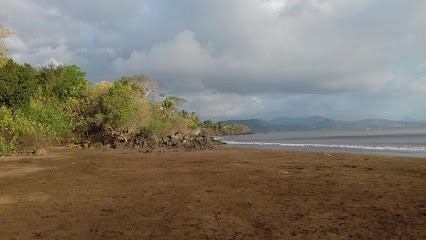
Cascade de Soulou
Discover the breathtaking beauty of Cascade de Soulou, a stunning waterfall in Mayotte that promises a serene escape into nature's embrace.
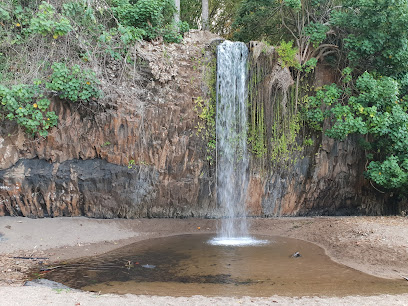
Mont Choungui
Discover the breathtaking views and lush landscapes atop Mont Choungui, Mayotte's highest peak, perfect for adventure and nature lovers.
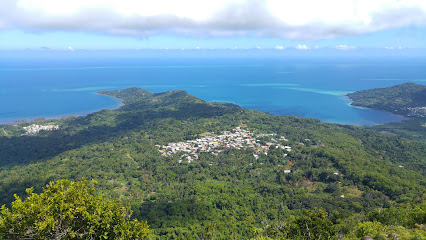
Mayotte Découverte
Explore the breathtaking waters of Mayotte with Mayotte Découverte, offering unforgettable boat tours and marine adventures in paradise.
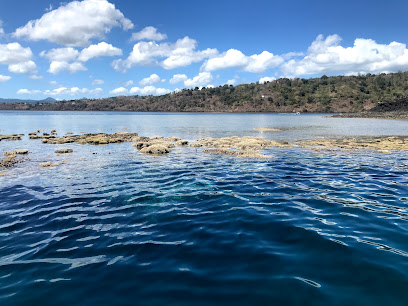
Plage de Sakouli
Explore the serene beauty of Plage de Sakouli, a hidden gem in Mayotte, renowned for its crystal-clear waters and vibrant coral reefs.
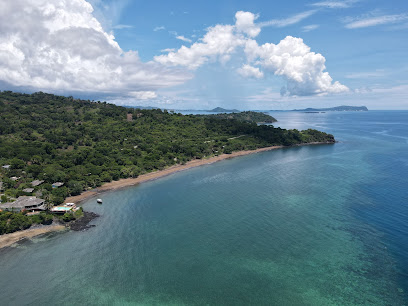
Place du marché de Sicotram
Immerse yourself in the vibrant culture of Mayotte at Place du marché de Sicotram, where local flavors and crafts abound in a lively market atmosphere.
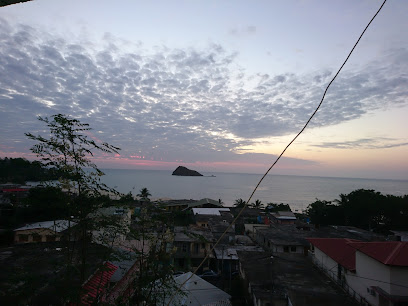
Mosquée de Tsingoni
Discover the tranquil beauty of Mosquée de Tsingoni, an architectural gem reflecting Mayotte's rich cultural heritage in a serene village setting.
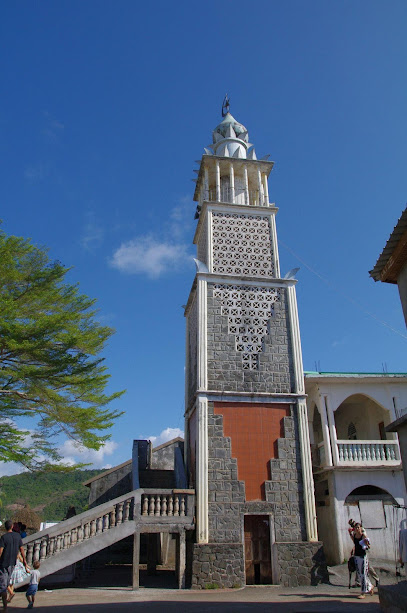
Baie de Chiconi
Explore the breathtaking beauty of Baie de Chiconi in Mayotte, where serene waters and vibrant marine life await your discovery.
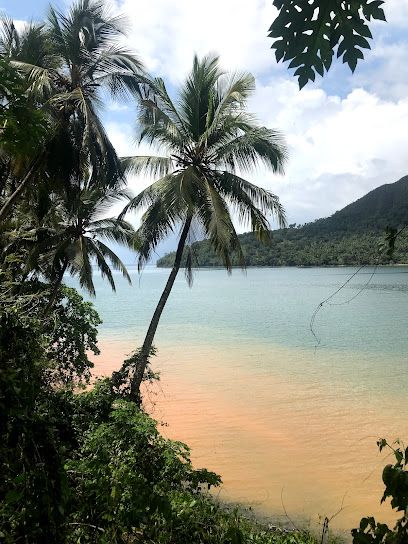
Place Moichicou Madi
Explore Place Moichicou Madi, a lively plaza in Mayotte, where culture, community, and local flavors come together in vibrant harmony.
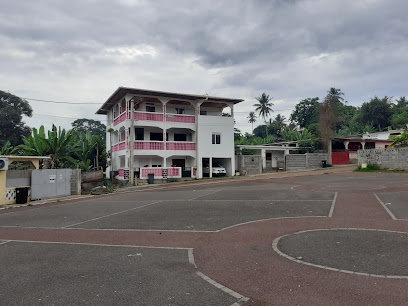
Maison du Gouverneur
Discover the colonial history of Mayotte at Maison du Gouverneur, a beautifully preserved landmark with stunning architecture and serene gardens.
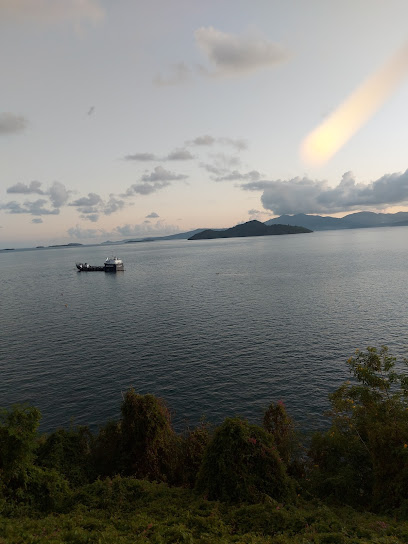
Recif Helicopteres
Soar above Mayotte's breathtaking landscapes with Recif Helicopteres for an unforgettable aerial adventure.
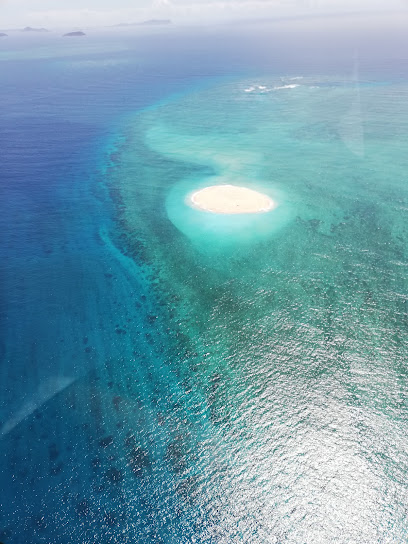
Plage de Zidakani
Explore the tranquil beauty of Plage de Zidakani, a serene beach in Mayotte, perfect for relaxation and unforgettable coastal experiences.
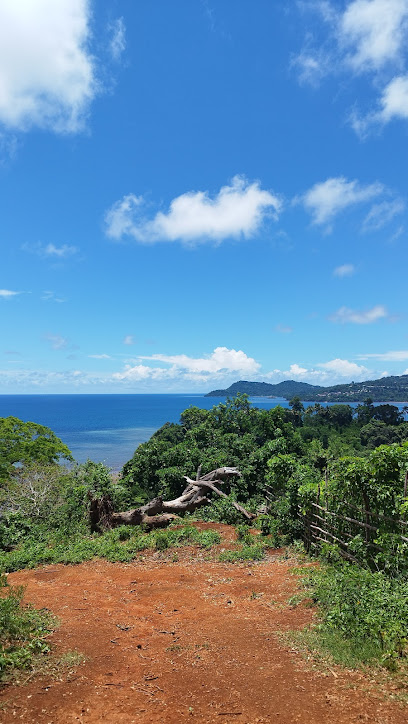
Îles Choazil
Experience the untouched beauty of Îles Choazil, an idyllic archipelago in Mayotte, perfect for relaxation, adventure, and cultural discovery.

Baobab Tour Mayotte
Experience Mayotte's breathtaking landscapes and rich culture with Baobab Tour Mayotte's guided sightseeing tours.
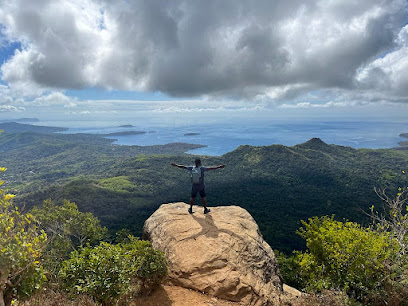
MOSQUÉE DE CHICONI
Discover the tranquil beauty of Mosquée de Chiconi, a serene mosque showcasing the rich cultural heritage of Chiconi, Mayotte.

Unmissable attractions to see
Dziani Dzaha
Experience the breathtaking tranquility of Dziani Dzaha Lake in Mayotte, a vibrant escape surrounded by lush greenery and stunning volcanic landscapes.
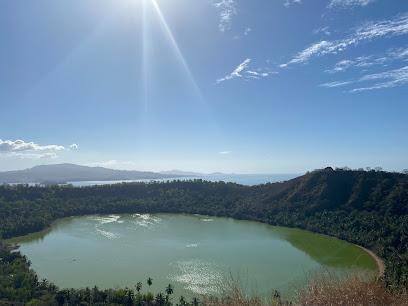
Maison du Gouverneur
Explore the historical allure of Maison du Gouverneur in Dzaoudzi, Mayotte, where colonial architecture meets stunning ocean views.
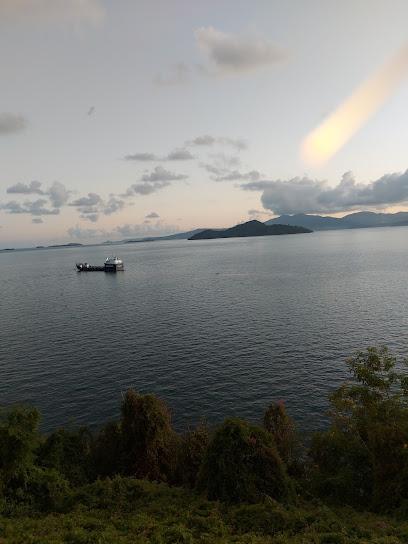
Îles Choazil
Discover the serene beauty of Îles Choazil, a hidden paradise in Mayotte, where pristine beaches and vibrant marine life await.

Essential places to dine
Nasso na Bisso
Discover authentic Mayotte cuisine at Nasso na Bisso - where traditional flavors meet contemporary dining in Sada.
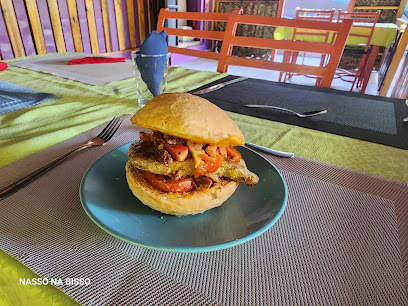
Le Chissioua
Discover authentic Mayotte flavors at Le Chissioua - where culinary delight meets stunning scenery.
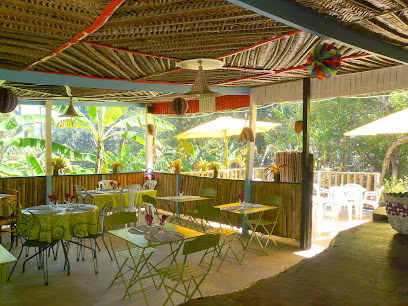
Restaurant les Artistes
Experience authentic Mayotte cuisine at Restaurant les Artistes in Combani—where local flavors come alive in every dish.
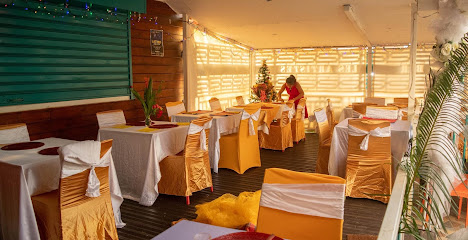
Restaurant-Bellevue
Experience the authentic flavors of Mayotte at Restaurant-Bellevue – where every dish tells a story amidst stunning views.
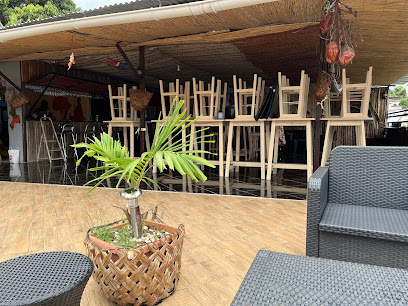
Kebab
Experience authentic Mayotte cuisine at Kebab in Chiconi—where flavorful kebabs meet warm hospitality.
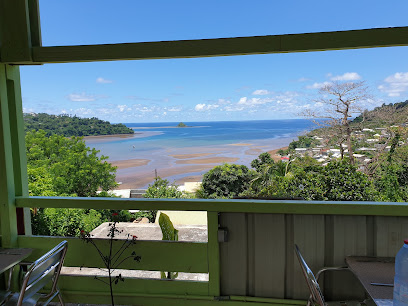
Le Terroir
Experience the vibrant flavors of Mayotte at Le Terroir - where fast food meets local tradition.
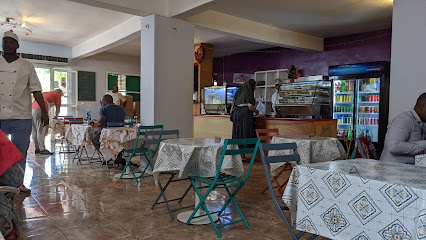
Gaboussi Café
Experience authentic Mayotte cuisine at Gaboussi Café - where every meal tells a story of local flavors and hospitality.
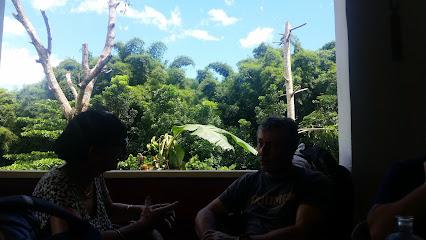
Bomba Snack
Experience authentic local flavors at Bomba Snack in Sada, Mayotte – a culinary delight offering traditional dishes with fresh ingredients.
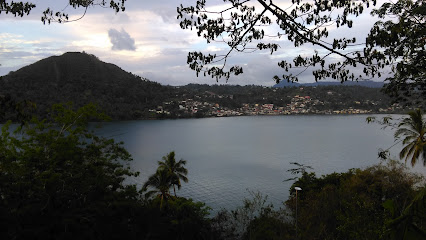
Le Tour Du Monde
Experience authentic Mayotte cuisine at Le Tour Du Monde – where every dish tells a story and every meal is a celebration.
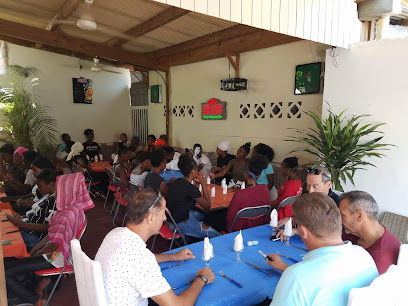
Monkeb's
Experience the rich flavors of Mayotte at Monkeb's Restaurant - where tradition meets taste in an inviting atmosphere.
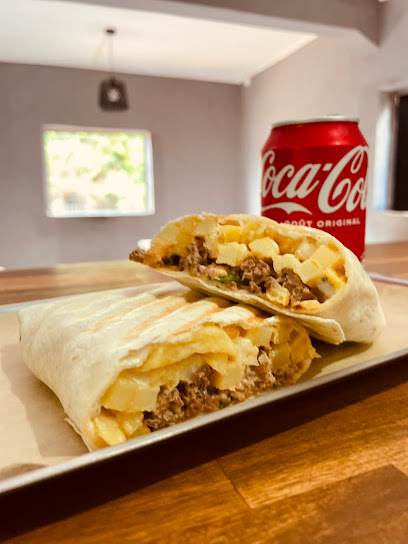
MAYOTTE au Mille Saveurs
Discover authentic Mayotte cuisine at Mayotte au Mille Saveurs - where fast food meets local flavor in a vibrant setting.
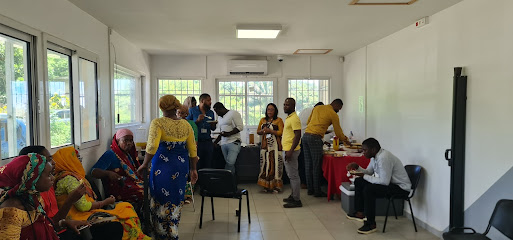
Hello Pizza - Chiconi
Discover Hello Pizza in Chiconi for an unforgettable pizza experience amidst the beautiful landscapes of Mayotte.
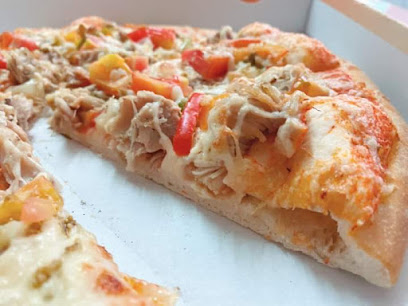
Bon Coin Italiano
Experience authentic Italian cuisine at Bon Coin Italiano in Mamoudzou - where every dish tells a story of tradition and flavor.
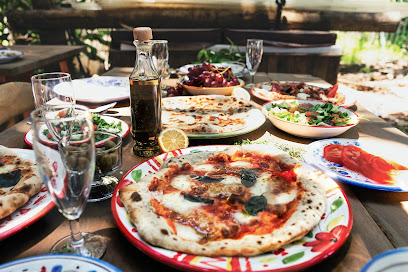
SNACK TSIKA
Experience authentic Mayotte cuisine at Snack Tsika in Chirongui - where local flavors meet warm hospitality.
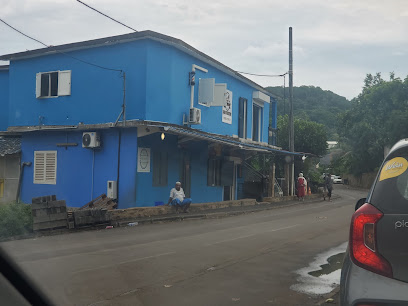
Le Periph’
Discover the culinary delights of Mayotte at Le Periph’, where local flavors meet exceptional hospitality.
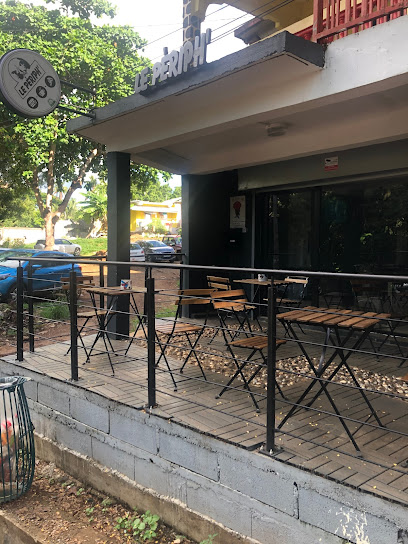
Markets, malls and hidden boutiques
Douka Bé Chiconi
Discover the vibrant culture and unique products of Mayotte at Douka Bé Chiconi, your local supermarket in Chiconi.
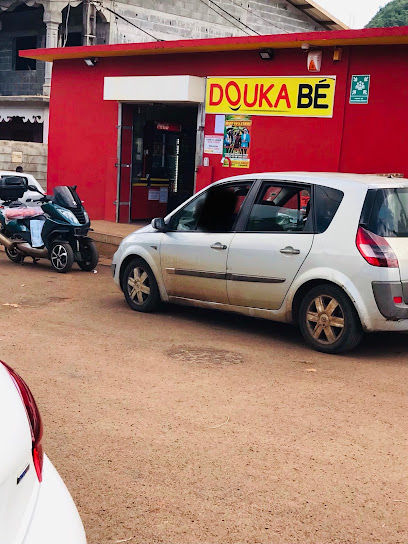
Sodicash de Chiconi
Discover local flavors and everyday essentials at Sodicash de Chiconi, your go-to convenience store in Mayotte for a hassle-free shopping experience.
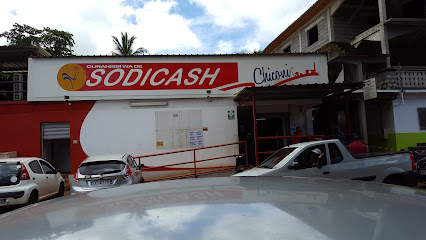
Le Building boutique
Experience the vibrant culinary culture of Mayotte at Le Building Boutique, your go-to grocery store for local produce and traditional delicacies.
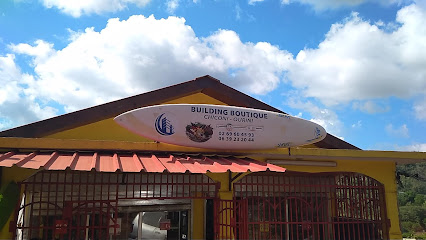
L'Atelier des Titounes
Explore L'Atelier des Titounes in Sada, Mayotte, for eco-friendly second-hand treasures ranging from toys to clothing for the whole family.
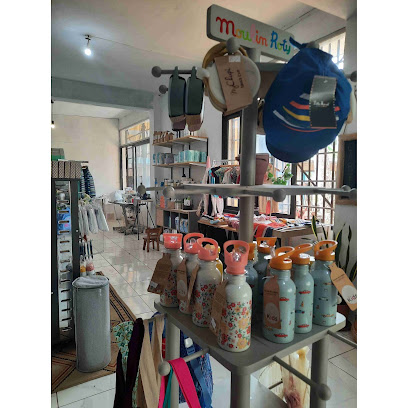
Manga Market
Explore Manga Market in Sada, Mayotte, for unique local treasures, warm hospitality, and a true taste of island culture.

La Terrasse du Goût
Discover the tropical delights of La Terrasse du Goût, Chiconi's premier ice cream destination offering unique flavors and a cozy atmosphere.
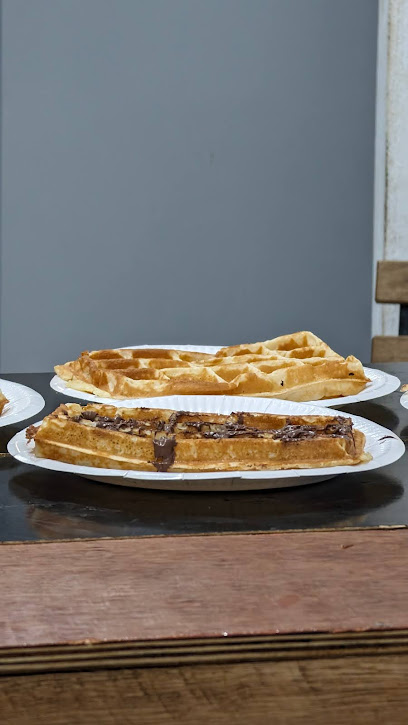
Magasin MZE
Explore Magasin MZE in Sohoa Cavani, Mayotte: your go-to convenience store for local products, snacks, and a taste of island life.
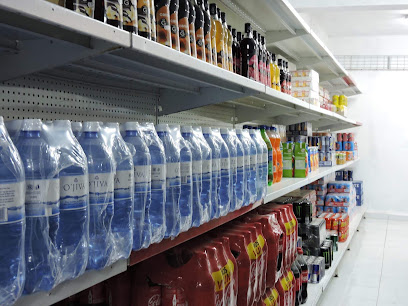
Épicerie du centre - Madahalani
Discover the authentic tastes of Mayotte at Épicerie du Centre, your go-to grocery store for local flavors and culinary delights.

DOUKA RIDJALI SOUFFOU
Explore local flavors at Douka Ridjali Souffou, Chiconi's grocery store, your gateway to the culinary delights of Mayotte.
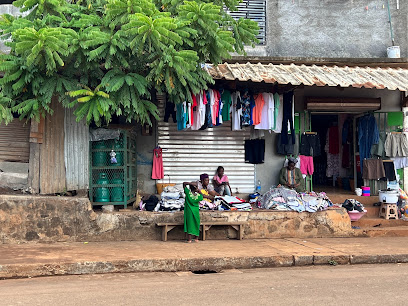
Caverne Fashion
Discover quality workwear at Caverne Fashion in Ouangani, Mayotte, where style meets functionality for every professional.
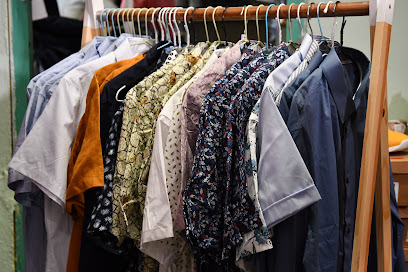
C'JUMO DOUKA
Explore C'JUMO DOUKA in Ouangani for unique local crafts and an authentic Mayotte shopping experience.
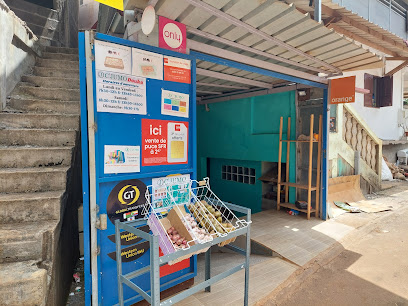
Andigoli
Discover the flavors of Mayotte at Andigoli, a local grocery store offering fresh produce and unique local ingredients.
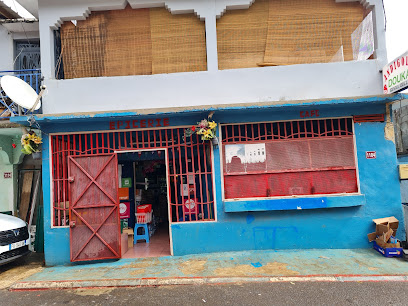
SHOPFORYOUOFFICIEL.COM
Explore the unique fashion offerings of SHOPFORYOUOFFICIEL.COM in Chiconi, Mayotte, where local culture meets contemporary style.

GENERAL SHOP SOHOA
Explore the heart of Mayotte’s natural offerings at General Shop Sohoa, featuring organic products and local treasures.
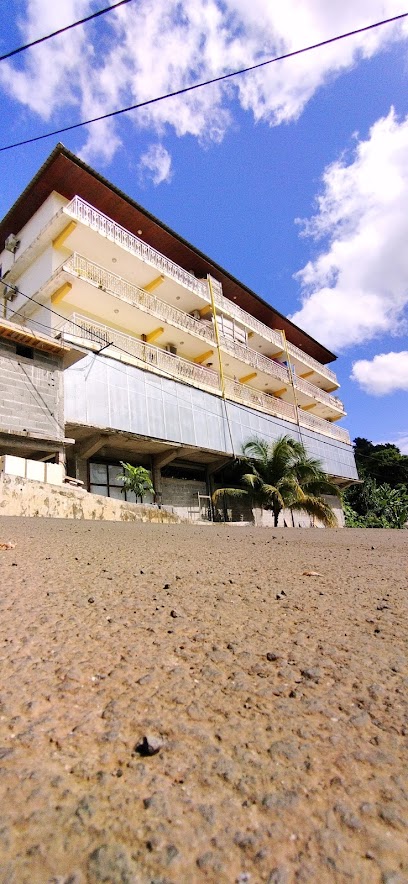
Amboirou-Market
Discover the vibrant local culture and fresh flavors at Amboirou Market in Chiconi, the heart of Mayotte's culinary scene.

Essential bars & hidden hideouts
Le Camion Blanc
Experience the vibrant nightlife of Mamoudzou at Le Camion Blanc, a lively bar offering a taste of local culture and a welcoming atmosphere.
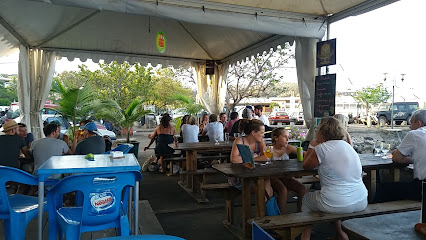
Barakili
Discover the lively atmosphere of Barakili in Mamoudzou, Mayotte – a perfect spot for refreshing drinks and a taste of local culture.
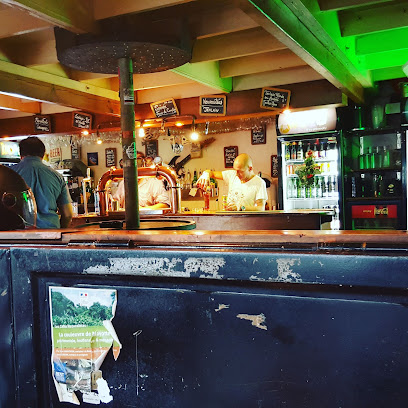
Le Sympa
Discover the vibrant atmosphere and delightful local flavors at Le Sympa, a premier bar and restaurant along the stunning shores of Pamanzi, Mayotte.
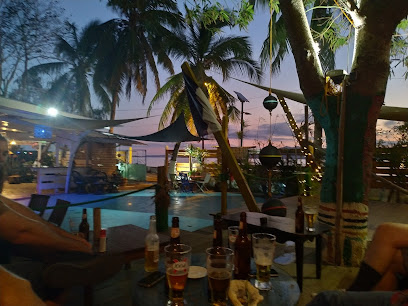
Gaboussi Café
Experience the authentic flavors of Mayotte at Gaboussi Café, where local cuisine meets a warm and inviting atmosphere.
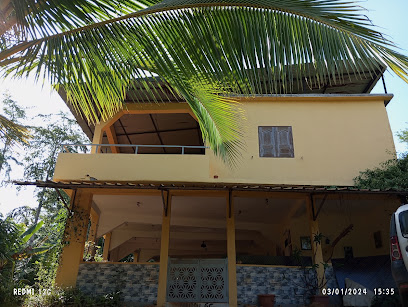
Café Restaurant-Snack Bar
Experience the vibrant flavors of Mayotte at Café Restaurant-Snack Bar, a delightful dining destination in Chiconi offering local and international cuisine.
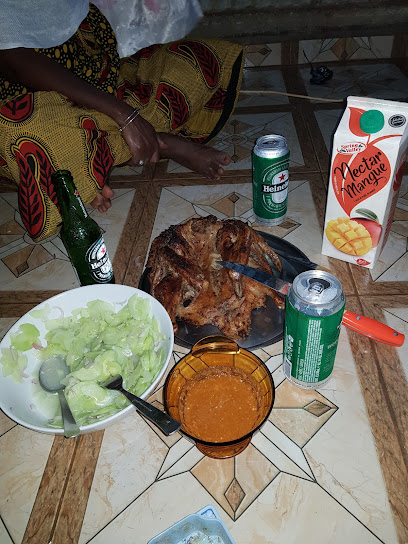
Le Makwé Bar
Experience the vibrant atmosphere of Le Makwé Bar in Tsararano, Mayotte, where local flavors and community spirit come alive.
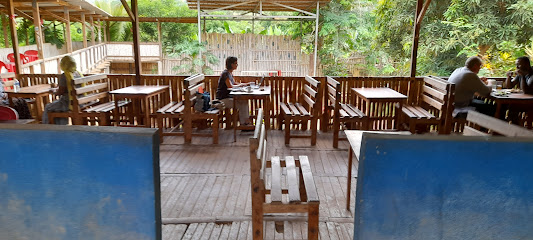
La Terrasse du Goût
Indulge in artisanal ice creams at La Terrasse du Goût, a charming ice cream shop in Chiconi, Mayotte, where local flavors meet serene views.
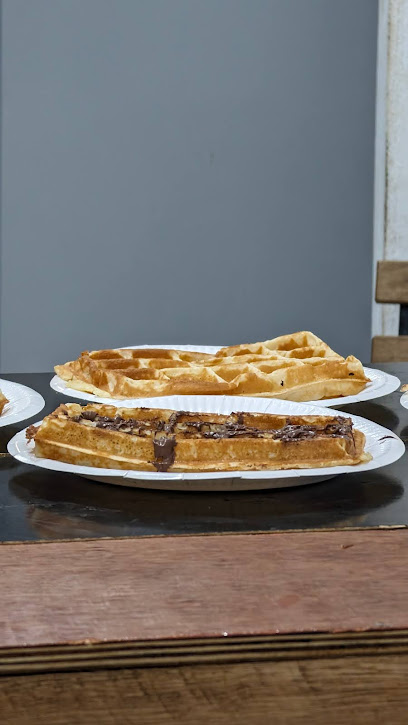
Tchak bé
Discover Tchak bé in Boueni, a vibrant bar offering local drinks, lively music, and an authentic taste of Mayotte's nightlife.
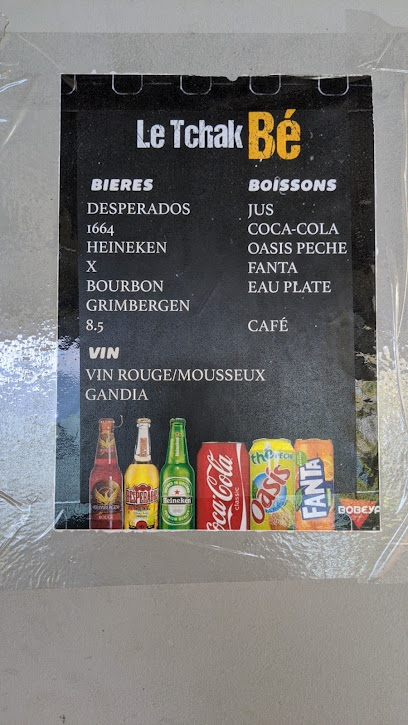
Knet
Experience the vibrant nightlife of Mamoudzou at Knet, the go-to bar for tourists seeking local drinks and a lively atmosphere.

Marguerittas
Discover the taste of Italy in Chiconi at Marguerittas, where every pizza is a slice of paradise crafted with fresh ingredients.
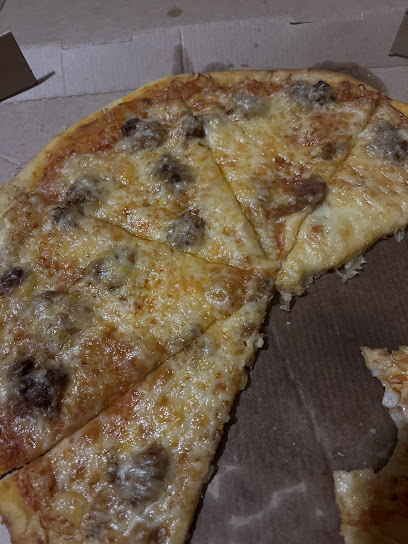
Tdz2
Discover the vibrant Tdz2 Pub in Mamoudzou, a perfect spot to unwind with drinks and immerse in local culture and community spirit.
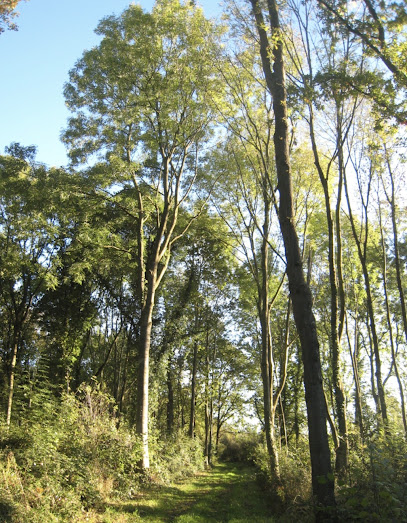
HÉRITIERS 2 DE LA RUE
Experience the vibrant nightlife of Mayotte at HÉRITIERS 2 DE LA RUE, a lively bar in Tsountsou 2 offering local drinks and a welcoming atmosphere.

Déjeuner pas cher
Discover authentic Mayotte flavors at Déjeuner pas cher, the perfect spot for affordable local cuisine in Bandraboua.
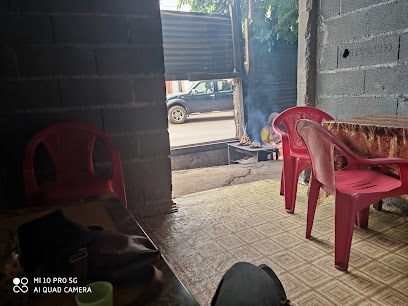
Chiconi
Discover the vibrant ambiance of Chiconi, a local bar in Mayotte offering authentic drinks and a unique cultural experience.
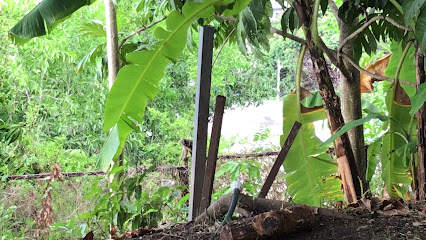
Local Phrases
-
- HelloSalama
[sa-la-ma] - GoodbyeKwaheri
[kwa-he-ri] - YesEwe
[e-we] - NoHapana
[ha-pa-na] - Please/You're welcomeTafadhali
[ta-fa-dha-li] - Thank youAsante
[a-san-te] - Excuse me/SorrySamahani
[sa-ma-ha-ni] - How are you?Umejiwezaje?
[u-me-ji-we-za-je] - Fine. And you?Nzuri. Na wewe?
[nzu-ri. na we-we] - Do you speak English?Unazungumza Kiingereza?
[u-na-zun-gum-za king-ge-re-za] - I don't understandSielewi
[sie-le-wi]
- HelloSalama
-
- I'd like to see the menu, pleaseNingependa kuona menyu, tafadhali
[nin-ge-pen-da ku-o-na me-nyu, ta-fa-dha-li] - I don't eat meatSiili nyama
[si-li nya-ma] - Cheers!Mambo!
[mam-bo] - I would like to pay, pleaseNingependa kulipa, tafadhali
[nin-ge-pen-da ku-li-pa, ta-fa-dha-li]
- I'd like to see the menu, pleaseNingependa kuona menyu, tafadhali
-
- Help!Msaada!
[m-sa-a-da] - Go away!Nenda zako!
[nen-da za-ko] - Call the Police!Piga Polisi!
[pi-ga po-li-si] - Call a doctor!Piga daktari!
[pi-ga dak-ta-ri] - I'm lostNimepotea
[ni-me-po-te-a] - I'm illNinaumwa
[ni-na-um-wa]
- Help!Msaada!
-
- I'd like to buy...Ningependa kununua...
[nin-ge-pen-da ku-nu-nua] - I'm just lookingNinaangalia tu
[ni-na-an-ga-lia tu] - How much is it?Ni bei gani?
[ni bei ga-ni] - That's too expensiveHiyo ni ghali sana
[hi-yo ni gha-li sa-na] - Can you lower the price?Unaweza kupunguza bei?
[u-na-we-za ku-pun-gu-za bei]
- I'd like to buy...Ningependa kununua...
-
- What time is it?Ni saa ngapi?
[ni sa-a nga-pi] - It's one o'clockNi saa moja
[ni sa-a mo-ja] - Half past (10)Nusu kumi
[nu-su ku-mi] - MorningAsubuhi
[a-su-bu-hi] - AfternoonMchana
[m-cha-na] - EveningJioni
[jo-ni] - YesterdayJana
[ja-na] - TodayLeo
[le-o] - TomorrowKesho
[ke-sho] - 1Moja
[mo-ja] - 2Mbili
[m-bi-li] - 3Tatu
[ta-tu] - 4Nne
[n-ne] - 5Tano
[ta-no] - 6Sita
[si-ta] - 7Saba
[sa-ba] - 8Nane
[na-ne] - 9Kenda
[ken-da] - 10Kumi
[ku-mi]
- What time is it?Ni saa ngapi?
-
- Where's a/the...?Iko wapi...?
[i-ko wa-pi] - What's the address?Anwani ni ipi?
[an-wa-ni ni i-pi] - Can you show me (on the map)?Unaweza kunionyesha (kwenye ramani)?
[u-na-we-za ku-ni-o-nye-sha (kwe-ne ra-ma-ni)] - When's the next (bus)?Basi lifuatalo ni saa ngapi?
[ba-si li-fua-ta-lo ni sa-a nga-pi] - A ticket (to ....)Tiketi (kwenda ....)
[ti-ke-ti (kwen-da)]
- Where's a/the...?Iko wapi...?
History of Chiconi
-
Chiconi, located on the island of Mayotte in the Indian Ocean, has a rich history dating back to the early settlers from Africa and Madagascar. These early inhabitants were primarily engaged in agriculture and fishing, utilizing the fertile land and abundant marine resources. Archeological findings suggest that the area has been continuously inhabited for centuries, with traces of ancient tools and pottery indicating a complex and thriving community.
-
Islam arrived in Mayotte, including Chiconi, around the 15th century through Arab traders and missionaries. The introduction of Islam brought significant cultural and social changes to the region. Mosques were built, and Islamic practices and education became integral parts of the community. The influence of Islam is still evident today, with Chiconi being home to several historic mosques and religious schools.
-
In the 19th century, Mayotte, including Chiconi, came under French colonial rule. The French influence brought about infrastructural development and changes in administrative practices. However, the local population maintained much of their cultural identity, blending French customs with traditional practices. The colonial era left a lasting impact on the architecture and urban planning of Chiconi, with several colonial buildings still standing today.
-
After Mayotte voted to remain a French territory in the 1970s, Chiconi experienced a period of transition. The town saw increased investment in education, healthcare, and infrastructure. This period also marked a renewed interest in preserving and celebrating local culture and traditions. Various festivals and cultural programs were initiated to promote the rich heritage of Chiconi.
-
Today, Chiconi is a vibrant town that beautifully blends its historical roots with modern advancements. The town is known for its bustling markets, where traditional crafts and local produce are sold. Education and healthcare facilities have significantly improved, and the town continues to grow as a cultural and economic hub in Mayotte. Modern Chiconi is a testament to the resilience and adaptability of its people, preserving their rich history while embracing the future.
Chiconi Essentials
-
Chiconi is located on the island of Grande-Terre in Mayotte, a French overseas department. The nearest international airport is Dzaoudzi–Pamandzi International Airport (DZA), situated approximately 30 kilometers from Chiconi. From the airport, you can take a taxi or rent a car to reach Chiconi. The journey typically takes around 45 minutes by road. Public buses also operate between the airport and Chiconi, though they may take longer due to multiple stops.
-
Chiconi is a small town, and many of its attractions are within walking distance. For longer trips, local taxis are readily available and relatively inexpensive. Public buses and minibuses (known as 'taxi-brousse') operate within the town and connect to other parts of the island. Renting a car can be a convenient option for exploring the island at your own pace. Note that road conditions can vary, so drive cautiously.
-
The official currency in Mayotte is the Euro (EUR). Credit cards are accepted in some hotels, restaurants, and shops, but it is advisable to carry cash, especially in smaller establishments and rural areas. ATMs are available in Chiconi, but it is wise to withdraw sufficient cash in larger towns like Mamoudzou before traveling to ensure you have enough funds.
-
Chiconi is generally a safe destination for tourists. However, like any travel destination, it is advisable to take standard precautions. Avoid walking alone at night in unfamiliar areas and keep an eye on your belongings in crowded places. While Chiconi does not have specific high-crime areas targeting tourists, it is always best to stay vigilant and aware of your surroundings.
-
In case of emergency, dial 112 for immediate assistance. The local police station and medical facilities are available in Chiconi. It is recommended to have travel insurance that covers medical emergencies. For minor health issues, there are pharmacies in the town where you can purchase over-the-counter medications. The main hospital is located in Mamoudzou, about 30 kilometers away.
-
Fashion: Do dress modestly, especially when visiting religious sites. Avoid wearing revealing clothing. Religion: Do respect local customs and traditions. Always cover your head and remove your shoes when entering mosques. Public Transport: Do be respectful and give up your seat to elderly passengers. Don't eat or drink on public transport. Greetings: Do greet people with a handshake or a slight nod. In more formal settings, use a respectful greeting like 'Salam Alaykum.' Eating & Drinking: Do try local delicacies and accept food offerings graciously. Don't refuse hospitality, as it is considered impolite.
-
To experience Chiconi like a local, visit the local markets where you can buy fresh produce and traditional Mayotte goods. Engage with locals, as they are often friendly and willing to share stories about the town's history and culture. Don't miss the chance to enjoy a traditional 'm’zungu' meal, which often includes fresh seafood and island-grown vegetables. For a unique experience, take a boat trip to explore the surrounding coral reefs and marine life.
Trending Landmark in Chiconi
Nearby Cities to Chiconi
-
Things To Do in Sada
-
Things To Do in Dembeni
-
Things To Do in Chirongui
-
Things To Do in Bandrele
-
Things To Do in Acoua
-
Things To Do in Mamoudzou
-
Things To Do in Koungou
-
Things To Do in Domoni
-
Things To Do in Ouani
-
Things To Do in Iconi
-
Things To Do in Moroni
-
Things To Do in Mahajanga
-
Things To Do in Majunga
-
Things To Do in Nosy Be
-
Things To Do in Antsiranana





